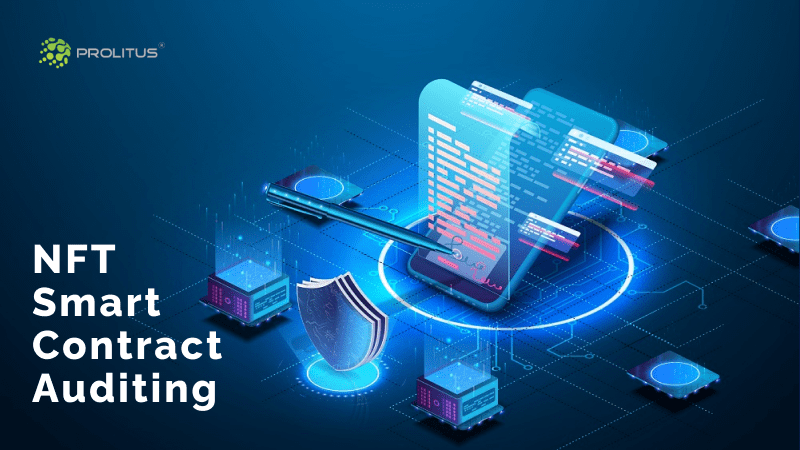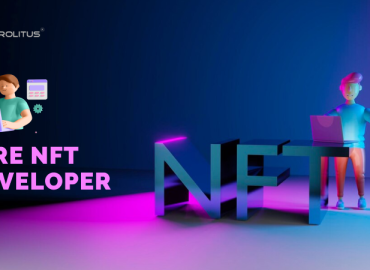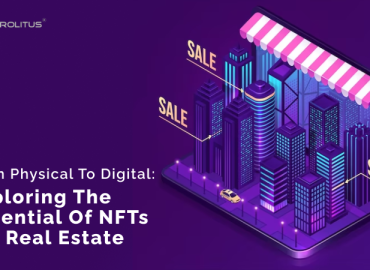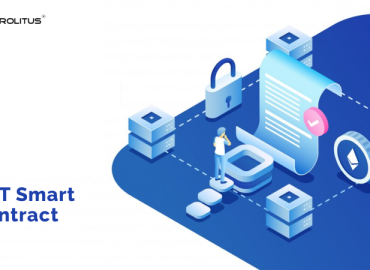As the popularity of NFTs continues to grow, so does the need for effective security measures to protect them from potential threats and vulnerabilities. NFT smart contract auditing is a critical process that helps ensure the security and functionality of NFT smart contracts.
By reviewing and testing the code and logic of NFT smart contracts, auditors can identify potential security vulnerabilities and risks and evaluate the contractor’s compliance with relevant regulations and standards. This helps build trust and confidence in the NFT marketplace while mitigating potential risks for creators and buyers of NFTs. In the following sections, we will discuss the best practices for NFT smart contract auditing that auditors should follow when reviewing the security and functionality of NFT smart contracts.
Preparing for an NFT Smart Contract Audit
Before conducting an NFT smart contract audit, auditors must take steps to ensure that they have a clear understanding of the scope and objectives of the audit, as well as the needs of the various stakeholders involved.
First, auditors must determine the scope of the audit, which may include the entire NFT smart contract or specific portions of it. This will depend on the type of NFT being audited, its intended use, and the risk associated with its creation and transfer. Auditors should also establish the objectives of the audit, such as identifying potential security vulnerabilities, evaluating compliance with regulations and standards, or testing the contract’s functionality and usability.
Next, auditors should identify the stakeholders involved in the NFT smart contract, including the creators, owners, buyers, and any third-party service providers involved in its creation or transfer. By understanding the needs and expectations of these stakeholders, auditors can tailor their audit approach and recommendations to ensure that they are relevant and practical.
Finally, auditors must gather relevant information and documentation related to the NFT smart contract being audited. This may include the smart contract’s code and documentation, any relevant regulatory requirements or industry standards, and any documentation related to the contract’s creation or transfer. Auditors may also need to conduct interviews with relevant stakeholders to understand the NFT and its associated risks better.
By taking these preparatory steps, auditors can ensure that they have a clear understanding of the scope and objectives of the audit, as well as the stakeholders’ needs. This will help to ensure that the audit is conducted effectively and efficiently and that any potential risks or vulnerabilities are identified and addressed promptly.
Conducting an NFT Smart Contract Audit
Once auditors have prepared for the NFT smart contract audit, they can begin conducting the audit itself. This involves a thorough examination of the smart contract’s code and logic, as well as the identification of potential security vulnerabilities, risks, and compliance issues.
The first step in conducting an NFT smart contract audit is to examine the contract’s code and logic. Next, auditors should review the code for accuracy, completeness, and consistency and evaluate the code’s structure and design quality. Finally, they should also assess the code for potential vulnerabilities and risks, such as the presence of any bugs, errors, or loopholes that malicious actors could exploit.
Next, auditors should identify potential security vulnerabilities and risks associated with the NFT smart contract. This may include assessing the contract’s access controls, encryption methods, and authentication mechanisms and evaluating the contract’s resilience to common attack vectors, such as denial-of-service attacks or buffer overflows.
Auditors should also test the NFT smart contract’s functionality and usability. This may involve running simulations or test scenarios to evaluate the contract’s performance under different conditions and assess its ease of use and functionality for end-users.
Finally, auditors should review the NFT smart contract’s compliance with relevant regulations and standards. This may include assessing the contract’s adherence to industry-specific standards, such as those related to financial services or healthcare, and evaluating its compliance with relevant data privacy and security regulations.
By conducting a comprehensive audit of the NFT smart contract, auditors can identify any potential security vulnerabilities, risks, or compliance issues and make recommendations for addressing these issues promptly and effectively. This helps build trust and confidence in the NFT marketplace while mitigating potential risks for creators and buyers of NFTs.
Reporting and communicating audit findings
Once auditors have completed their NFT smart contract audit, they must document their findings and recommendations and communicate them effectively to stakeholders. This involves preparing a comprehensive audit report that outlines the audit results and provides actionable recommendations for addressing any identified issues.
The audit report should include a detailed overview of the NFT smart contract, the scope and objectives, and the methodology used to conduct the audit. It should also summarize the audit findings, including any security vulnerabilities, risks, or compliance issues identified during the audit.
In addition to outlining the audit findings, the report should provide actionable recommendations for addressing any identified issues. These recommendations should be prioritized based on the level of risk they pose to the NFT smart contract and should be accompanied by detailed instructions for implementing them.
After preparing the audit report, auditors must present their findings to relevant stakeholders, which include the creators, owners, and buyers of the NFT. Auditors should tailor their presentation to the audience and emphasize the most significant audit findings and recommendations.
By effectively communicating the audit findings and collaborating with stakeholders to address identified issues, auditors can help to ensure that NFT smart contracts are secure, compliant, and functional and that the risks associated with their creation and transfer are effectively mitigated.
Post-audit activities
The NFT smart contract audit is not a one-time event but an ongoing process that requires continuous monitoring and evaluation to ensure the effectiveness of corrective actions and the security of the NFT ecosystem. Therefore, it is essential to conduct post-audit activities that help to keep the NFT smart contract up-to-date and secure.
One of the post-audit activities is monitoring and evaluating the effectiveness of corrective actions taken to address identified issues. This involves tracking the progress of implementing the recommended changes and assessing their impact on the security and functionality of the NFT smart contract. In addition, by monitoring the effectiveness of corrective actions, stakeholders can identify any further adjustments needed to enhance the security and functionality of the NFT smart contract.
Another post-audit activity is conducting periodic follow-up audits. These audits should be scheduled regularly to assess the progress made since the last audit, identify new risks and threats, and ensure the NFT smart contract is still secure and compliant. In addition, follow-up audits provide a means for stakeholders to track their progress and identify any potential gaps in the security and functionality of the NFT smart contract.
Finally, staying current on emerging threats and risks in the NFT ecosystem is crucial. Auditors should remain vigilant for new vulnerabilities and attack vectors that may arise as the NFT marketplace evolves. By staying informed about emerging threats, auditors can provide stakeholders with timely recommendations and updates that help to maintain the security and functionality of the NFT smart contract.
Overall, post-audit activities are crucial in ensuring the ongoing security and functionality of the NFT smart contract. By monitoring and evaluating corrective actions, conducting periodic follow-up audits, and staying up-to-date on emerging threats and risks, auditors can help to maintain a secure and compliant NFT ecosystem.
Final Thoughts
NFTs have rapidly gained popularity as a means of representing digital ownership, but their security and functionality depend heavily on the underlying smart contract. Therefore, it is essential to conduct regular NFT smart contract audits to ensure that they are secure and functional and comply with relevant regulations and standards.
This article has provided an overview of the best practices for NFT smart contract auditing, including preparing for an audit, conducting the audit, reporting and communicating audit findings, and post-audit activities. In addition, auditors must thoroughly examine the smart contract’s code and logic, identify potential security vulnerabilities and risks, test the contract’s functionality and usability, and review compliance with relevant regulations and standards.
Once the audit is complete, auditors must document their findings and recommendations and communicate them effectively to stakeholders. In addition, they should collaborate with developers to address identified issues and implement recommended changes. Ongoing post-audit activities, such as monitoring the effectiveness of corrective actions, conducting periodic follow-up audits, and staying up-to-date on emerging threats and risks, are also crucial to maintaining the security and functionality of the NFT smart contract.
In conclusion, NFT smart contract auditing is critical to NFT security and functionality. By following best practices and conducting regular audits, stakeholders can mitigate the risks associated with NFT creation and transfer and ensure that the NFT ecosystem remains secure and compliant.
Audit Your NFT Smart Contract with Prolitus
Prolitus is a leading provider of smart contract auditing services that can help companies ensure the security and reliability of their NFT platforms. We offer a range of customized solutions to meet the specific needs of our clients, whether it’s a one-time audit or ongoing support.
Working with Prolitus provides an in-depth analysis of NFT smart contracts using industry-standard tools and methodologies. Our experienced team can identify potential security vulnerabilities and provide valuable insights to develop secure and reliable NFT platforms. Additionally, we ensure the timely delivery of reports to help companies quickly address any security issues and ensure smooth platform operation.
At Prolitus, we bring a wealth of expertise to the table, especially in blockchain technology. Our team of experts stays up-to-date with the latest developments in the field, and we use this knowledge to provide valuable recommendations and insights to our clients. We aim to help companies develop more secure and reliable NFT platforms that meet their specific needs. If you’re looking for a partner to help you ensure the security and reliability of your NFT platform, contact Prolitus today to learn how we can assist you.





